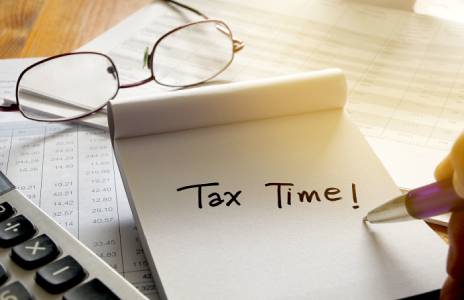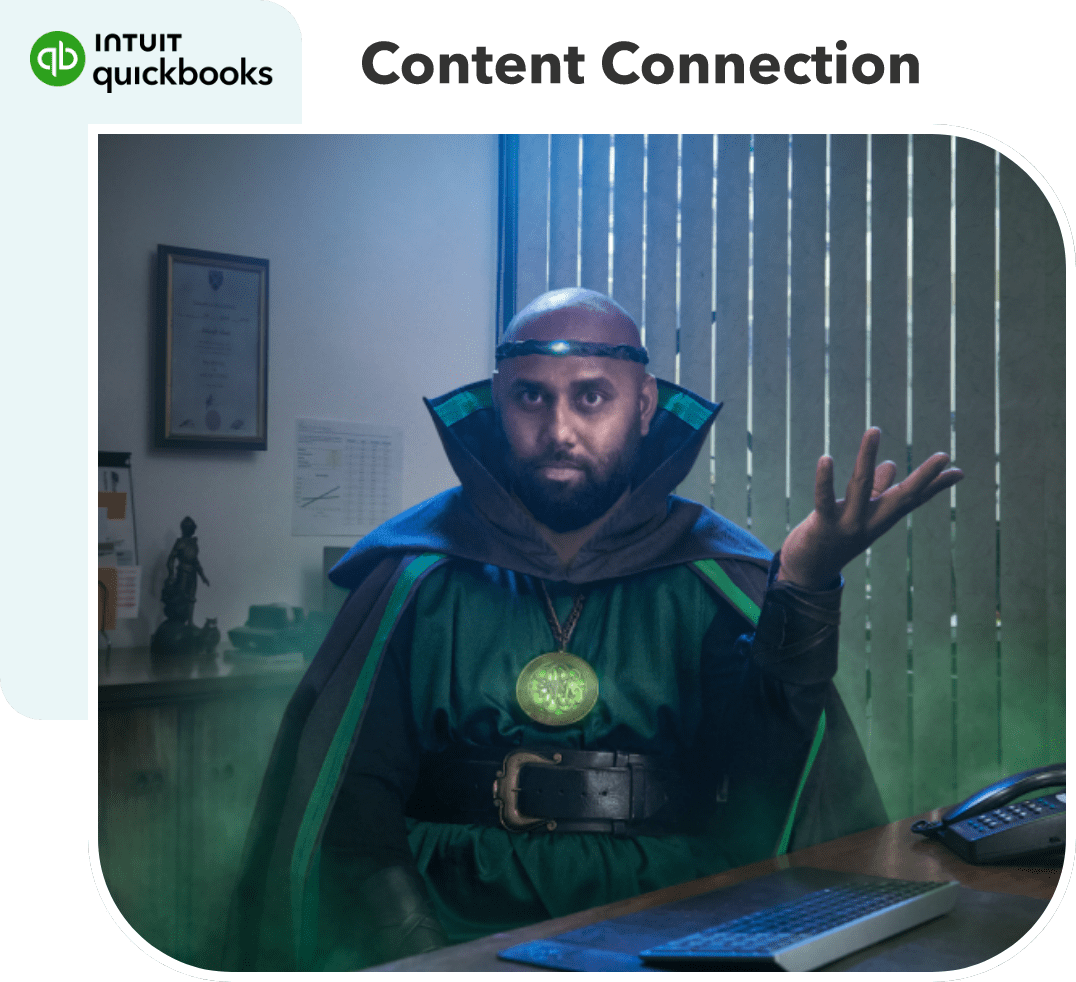QuickBooks Content Connection
Dedicated resources, inspiring stories and the latest industry news & views
EXPLORE NOWAre you ready for tax time?

Tax time, while necessary, can be daunting for small business. But a little preparation before the end of financial year can pay dividends when it comes to preparing the year-end accounts and tax returns.
Tax time, while necessary, can be daunting for small business. But a little preparation before the end of financial year can pay dividends when it comes to preparing the year-end accounts and tax returns.
Whether you are using a registered tax agent or lodging your own tax returns, we bring you a checklist to help meet your tax obligations.
If you are an accountant, make sure you familiarise your small business client with the following information.
Good record keeping
In order to ensure a smooth tax time, small businesses are advised to make good record keeping a habit.
By gathering, sorting and keeping a clean record, you will ease the tax lodgement process for yourself or your tax agent. You will also have a strong insight into how your business is performing all year long.
H&R Block’s Director of Tax Communications, Mark Chapman, advises small businesses to keep an eye on the following:
- If your business carries stock, carry out a stocktake by EOFY;
- Reconcile bank accounts and petty cash;
- Compare your debtors and creditors listings to amounts shown on the Balance Sheet to ensure they are reconciled;
- Reconcile GST and PAYG withholding accounts to the June BAS;
- Reconcile wages and superannuation per the P&L account to the PAYG Payment Summaries;
- Make sure personal expenses have not been claimed as business expenses;
- Make sure material differences to the prior year can be properly explained;
- Check that you have substantiation (receipts, invoices, etc) for all business expenses;
- Check that all sales – including cash sales – have been correctly accounted for;
- Have you set up for Single Touch Payroll, which comes into effect from 1 July, 2019 for small businesses?
- Ensure that last minute tax planning opportunities have been implemented, including writing off potentially deductible bad debts, deferring income into the next tax year, etc.
Expenses and deductions
If you are uncertain about how to approach claims, remember that the ATO allows small businesses to write-off most costs incurred in running a business.
Despite these conveniences, small businesses often don’t put enough effort into figuring out what they can claim and risk finding themselves in serious trouble.
In order to claim business expenses correctly, follow the ATO’s three golden rules:
- The money must have been spent for your business – not a private expense.
- If it is for a mix of business and private use, only claim the portion that is related to your business.
- You must have records to prove it.
What can I claim?
- If you or your employees travel for business, claim business travel expenses.
- If you have a vehicle for your business, claim motor vehicle expenses associated with running and maintaining the vehicle.
- If you run your business at your home, or your business is based from home, claim the business portion of some expenses, including mortgage interest and electricity.
- If you use a personal laptop or phone for business purposes, claim the time it is used for business.
But, in order to claim the above, you must have a record to prove it.
Note: You cannot claim expenses that are non-deductible, these include traffic fines, domestic expenses, or expenses related to income that is not assessable.
Tax concessions
If your business has some spare cash, it makes sense to take advantage of the $30,000 instant asset write-off to invest in assets that can boost the productivity and profitability of your business going forward, says Mr Chapman.
The instant asset write-off – now more generous thanks to changes announced in the April budget and effective for purchases from 2 April 2019 – allows you to claim an immediate tax deduction for all capital purchases costing less than $30,000, rather than depreciating the cost over several years.
“This is great for tech items such as computers, tablets and phones, as well as tools and equipment for tradies, office furniture and even motor vehicles,” Mr Chapman adds.
Since April, this allowance is now available to all businesses with an aggregated turnover of less than $50 million.
Long term planning
Although year-end tax planning has its place, Mr Chapman cautions that if you’re taking important financial decisions in the final few days of the financial year, you’re not really planning, “you’re simply reacting to opportunity”.
He advises, by way of a new financial year resolution, make a diary note to organise a meeting with your accountant to do some structured, longer term planning for the year ahead.
“Assess your business and personal financial goals for the year and understand what you can do to meet those needs.
“Whether that includes growing your business, improving productivity or planning for an exit, you need time and good advice to put the plans in place that will enable you to meet your goals,” Mr Chapman explains.
Tech perfection
The growth of simple, easy to use, and often low cost, accounting software has made life much easier for many small businesses.
And, although, small businesses often turn to accountants for tax matters, new software can ease everyday business tasks and make paperwork a lot more bearable.
“It does make the day to day task of keeping on top of your record keeping, managing income and expenses, controlling cash flow and reporting payroll a lot more straightforward for even the smallest businesses,” concludes Mr Chapman.
Handy tax calendar
|
Date |
Deadlines |
|
May 21 |
Your annual Fringe Benefits Tax (FBT) return is due today.
Lodge your monthly business activity statement (BAS) today. |
|
Jun 21 |
Lodge your monthly BAS today. |
|
Jun 30 |
It's officially the end of financial year.
Super guarantee contributions (SGC) must be paid by this date to qualify for a tax deduction.
Start getting ready for tax time by inviting your accountant to view your QuickBooks Online account. |
|
Jul 1 |
Happy new (financial) year!
Download our EOFY checklist.
Single touch payroll (STP) is available from today. |
|
Jul 14 |
Send employees PAYG payment summaries by today.
While you’re at it, lodge your payment summary annual report. |
|
Jul 21 |
Lodge your monthly BAS today. |
|
Jul 28 |
Lodge your quarterly PAYG and/or GST instalment notices today.
Lodge your quarterly BAS today.
Lodge your superannuation guarantee charge (SGC) statement today |
|
Aug 21 |
Lodge your monthly BAS today. |
|
Aug 28 |
Lodge your superannuation guarantee charge (SGC) statement today |
|
Sept 21 |
Lodge your monthly BAS today. |
|
Sept 30 |
Lodge your quarterly PAYG withholding payment summary today. |
|
Oct 21 |
Lodge your monthly BAS today.
Pay your annual PAYG withholding payment instalment today. That’s only if you're registered to pay annually. |
|
Oct 28 |
Pay superannuation for eligible employees today. |
|
Oct 31 |
Your tax return is due today!
Lodge your PAYG withholding annual report today. |
|
Nov 21 |
Lodge your monthly BAS today. |
|
Nov 28 |
Lodge your superannuation guarantee charge (SGC) statement today.
Pay your SGC from quarter 1 today. |
|
Dec 21 |
Lodge your monthly BAS today. |
Want more time to work on, not in, your practice?
Leave your details to get access to a range of time saving tools from Intuit QuickBooks.Latest Articles








